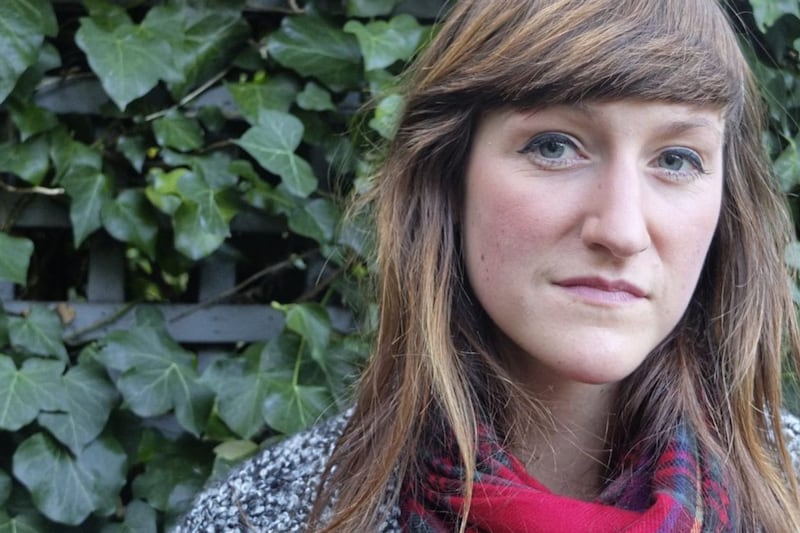GROWING up in Rostrevor surrounded by the Mourne Mountains and reading CS Lewis at bedtime was all the inspiration Laura McVeigh needed to put her own ideas down on paper and begin an epic, eye-opening odyssey towards her own debut novel.
Under the Almond Tree is published this week but it wasn't a straightforward journey from Rostrevor to Afghanistan (where the story is set) for the Cambridge graduate who now spends her time writing from homes in London and Mallorca (suitably surrounded by almond trees) with her husband and six year-old daughter.
Although a voracious reader since early childhood, the former director of PEN International spent many years just jotting down ideas – "I have a whole back catalogue," she jests – and it took several job diversions and a lifetime travelling before she finally checked in as a full-time storyteller.
After completing a degree in Modern and Medieval Languages at Cambridge University, McVeigh moved to London and worked in publishing and the charity sector, most recently as chief executive of PEN International – the worldwide writers’ association – where she campaigned on freedom of expression issues and helped persecuted refugees from around the globe.
A former director of the Global Girls Fund and passionate about female education, it is not difficult to see why she chose a family fleeing from the Taliban and hurtling across Russia on the Trans-Siberian Express as the dramatic backdrop to her first book.
"In my work at PEN, I had the privilege to work with many brave and resilient people from around the world – people in need of refuge and protection and who were often facing imprisonment or fleeing torture," she says.
"Their bravery and courage affected me deeply and I hope Under the Almond Tree, in some way, pays tribute to all those who have survived great loss in their lives.
"Over the years I also met many young people affected by conflict, maybe not being able to do as something as basic as go to school. I always tried to imagine how awful it would be, not being able to read or enjoy basic freedoms. Education is key to future life chances.
"But, while I listened to many heartbreaking stories of families forced to leave their homes and lives behind, what amazed me most was the resilience of the human spirit and a instinctive determination to carry on."
While the premise of Under the Almond Tree (an early draft was longlisted for the Mslexia Novel Award) is rooted in unearthing hope among the rubble of war, it is also a story of uncertainty, unsettling truths and the beliefs that underpin our lives – with, McVeigh teases, a few proverbial twists thrown in.
Fittingly, the story first took form in a cramped railway carriage in which the aspiring writer – who also holds an MSc in Global Politics – was travelling across Central Asia and thinking about the unpredictable nature of life's journeys in general.
"Travelling in the region gave me a sense of place and people, as did time spent with colleagues and friends from Afghanistan, Central Asia and Russia" she explains. "With my love of travel, the telling of this story started with the image of a train, the Trans-Siberian Express, and its constant journey back and forth."
It helped that her parents were huge Dr Zhivago fans (she was almost named Lara instead of Laura) so the fact McVeigh grew up with Boris Pasternak's masterpiece consolidated a romantic notion of trains and the journeys some people never wish to take.
"I loved reading Russian authors – Tolstoy in particular – and I appreciated the romanticism of great train journeys, but also the history and the harshness that sometimes came with them," she says. "I think, when you begin a book, you have so many disparate images, ideas and influences in your head, but, for me, the image of a train was one that stuck.
"Having grown up in Northern Ireland, I was also aware of how conflict shapes events, of the unspoken tensions that undoubtedly affect people and seep into daily lives."
The Troubles, then, covertly shaped her own future because as soon as she was old enough to travel, she was off, determined to prove that "people the world over are more similar than they are different" and to explore new places, learn new languages and open doors into places a world away from her own.
She has travelled into new territory yet again with the completion of a second book, The Plantation House, which is set in 17th century Montserrat – the Emerald Isle of the Caribbean – and involving an Irish girl whose life intertwines with that of the daughter of the house.
Strangely, it was this book which led to the publication of Under the Almond Tree, after she secured a publishing deal on the back of the #PitchCB initiative, a new scheme in which aspiring authors can pitch book ideas to agents in a single tweet.
"I had to sum up my book in one tweet, which was interesting," McVeigh muses. "The tweet was picked up and led to an opportunity to send my work to the chief executive of Curtis Brown and it went from there.
"I am hugely thrilled, especially as it is being translated into nine languages. That really means a lot to me, to think that in homes in Bulgaria, Germany, Denmark and China, my story is being read and that the story means the same on a human level, wherever you are from."
: Under the Almond Tree published by Two Roads will be available to buy in hardback (price £17.99) from February 23 in all good bookshops.




